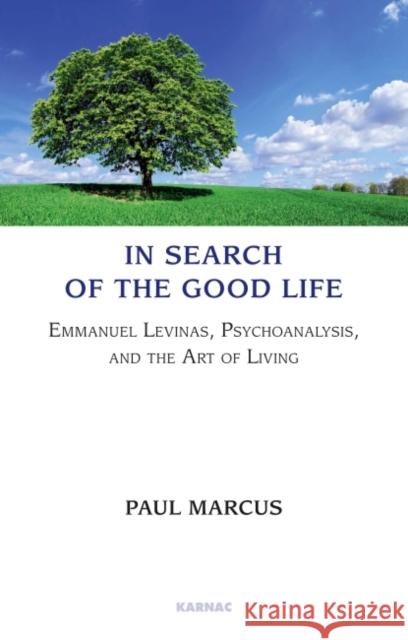In Search of the Good Life: Emmanuel Levinas, Psychoanalysis and the Art of Living » książka
In Search of the Good Life: Emmanuel Levinas, Psychoanalysis and the Art of Living
ISBN-13: 9781855757233 / Angielski / Miękka / 2010 / 228 str.
In Search of the Good Life: Emmanuel Levinas, Psychoanalysis and the Art of Living
ISBN-13: 9781855757233 / Angielski / Miękka / 2010 / 228 str.
(netto: 162,21 VAT: 5%)
Najniższa cena z 30 dni: 168,92
ok. 22 dni roboczych
Bez gwarancji dostawy przed świętami
Darmowa dostawa!
Emmanuel Levinas (1906-1995), French phenomenological philosopher and Talmudic commentator, is regarded as perhaps the greatest ethical philosopher of our time. While Levinas enjoys prominence in the philosophical and scholarly community, especially in Europe, there are few if any books or articles written that take Levinas's extremely difficult to understand, if not obtuse, philosophy and apply it to the everyday lives of real people struggling to give greater meaning and purpose, especially ethical meaning, to their personal lives. This book attempts to fill in the large gap in the Levinas literature, mainly through using a Levinasian-inspired, ethically-infused psychoanalytic approach.
All of the essays included in this book are animated by the Levinasian assumption that it is the ethical relation to the other person (and, in one case, dog ) that is primary. That is, there is a human tendency in us, an often inhibited, muted or repressed tendency, as psychoanalysts have taught us, to see the needs of others as more important (or at least as important) than our own and therefore be willing to sacrifice for others. Moreover, once this human tendency to be for the Other is consciously embraced and made part of one's way of being in the world the possibility for a greater degree of personal fulfillment and happiness is often enhanced. Thus, the art of living the -good life- involves embracing -goodness- as one's guiding metaphor, an existential orientation in which, says Levinas, -the Other counts more than myself.-
As social psychologists have repeatedly shown, in social life, paradoxically, it is often the case that -the more you give, the more you get.- Being for the Other, in other words, is often self-affirming











